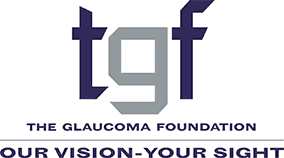~How To Help A Loved One With Glaucoma Adjust To Their New Normal~

People with glaucoma typically experience no symptoms before damage is already done. However, those with acute angle-closure glaucoma may have to learn to live with headaches, nausea, halos, eye redness, eye pain, and blurred vision. This can be a devastating life change, and one that takes adjustment. If you are looking to help your loved one after a glaucoma diagnosis, today’s tips, which are brought to you by The Glaucoma Foundation, can help.
Understand The Disease
Anytime a loved one is diagnosed with a chronic condition, one of the most compassionate things you can do is to get to know their disease. Read up about glaucoma, how it affects a person’s life, and what they can do to ease the symptoms. This can help you get a better grasp on ways you can offer assistance.
Help Them Reduce Stress
Unfortunately, stress is part of the package with any medical condition. There are ways you can help here, such as cleaning and reducing clutter in their home. Other ideas to improve their home environment includes swapping their light-blocking curtains to allow more natural light inside and adding a few houseplants here and there, which are known to improve mood. A side note here: while natural light is great inside, light sensitivity is common in people with glaucoma, according to Glaucoma Associates of Texas. You can also help by taking over outdoor chores, such as weed eating and mowing, so they are not being affected directly by the sunlight.
Simplify Their Office Setup
Even when you have glaucoma, you still have to work and earn a living. For those who work at home, you might consider lending a hand making their office more glaucoma-friendly. A few tips here are to organize their papers and records both online and in person and to help them set up ergonomic furniture so that they are not distracted by back pain, discomfort, or eye fatigue while they work.
Offer Assistance With The Kids
According to Health Central, people with glaucoma are more likely to be involved in a vehicle accident than their non-glaucoma-having companions. This can make it more difficult to get the kids back and forth to school, the playground, and appointments. If you are close by, reach out to see if the kids need a ride. This can take some pressure off of your loved one while ensuring that their little ones aren’t missing out on important social events and opportunities.
Make A Day Out Of Doctor Appointments
As your loved one’s condition progresses, driving the kids around won’t be their only concern. They may no longer be able to drive long distances (or at all). When and if this happens, be available for rides back and forth to the doctor’s office. But, don’t just let them go only to come back with little more than a new prescription or lifestyle change recommendation. Instead, make a day out of it. Visit the park, head to the farmers market, or head out for a salad or tuna sandwich (Iris Vision notes that leafy greens and seafood are great for glaucoma patients).
Just Listen
More than any of the above tips, be available to listen when your loved one is sad, scared, or angry. Any type of life-altering medical diagnosis can significantly affect their mood, but a listening ear may be all they need to work out their emotions.
While glaucoma is common, it is still a life-altering disease. If a friend or family member has been recently diagnosed, their lives will change. You can help in many ways, including making it easier for them to work from home, organizing the house, driving the kids around, or simply just listening.
Article by Camille Johnson
If you’re looking to help the 67 million people with glaucoma, get involved today. You can donate through Amazon Smile, which gives .5% of every dollar you spend back to the organization.
Sign up for our next webinar

The psycho-social issues of glaucoma that so dramatically affect a patient’s quality of life are rarely addressed in glaucoma care as they have been in other medical situations such as AIDS, cancers and Alzheimers.How can glaucoma affect your professional and personal life? How does stress impact glaucoma? What techniques can reduce anxiety? What should you look for in a therapist? Glaucoma patient Joe Lovett and psychologist Deborah Waxenberg explore these and other questions about living with glaucoma.
